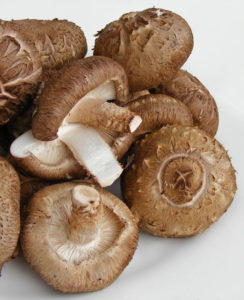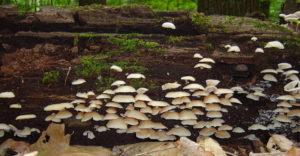Mushrooms can liven up an ordinary meal and often work as a delicious substitute for meat, without letting meat lovers feel deprived.
Fungi that have been consumed for thousands of years, mushrooms have been used for both, their culinary and medicinal properties. In addition, this superfood also helps restore pollution-damaged habitats, acts as a natural pesticide, and even provides a sustainable fuel called Econol.
The most well-known types include white or button, mushroom, shiitake, Portobello, and chanterelle. Mushrooms can be eaten raw or cooked, although their flavor usually intensifies with cooking.
Health benefits of mushrooms:
- Weight management– Mushrooms are low in calories and nutritious. One study showed that substituting red meat with white button mushrooms may support a healthy weight. Mushrooms contain a few calories but are rich in protein, fiber and several vitamins and minerals. They are rich in potassium, B vitamins, and selenium. All are low in fat.
- Improved nutrition– Mushrooms boost immune function-Adding more mushrooms to your diet may help improve diet quality. Mushrooms contain long-chain polysaccharides, especially alpha and beta glucans also found in oatmeal. These nutrients have beneficial effects on immune system.
Mushrooms are also great sources of protein, fiber, B vitamins (especially niacin), vitamin C, calcium, minerals, and selenium. They also contain antioxidants that are unique to mushrooms, such as ergothioneine, which according to studies is highly powerful.
Other naturally occurring compounds like fungal proteins, lectins, peptides, and laccases in mushrooms also support immune function.
Mushrooms have been used in traditional Chinese medicine for hundreds of years to improve health. For example, shiitake have long been thought to cure a common cold. Studies have shown that mushroom extract, especially from shiitake, may help fight viruses. Shiitake and oyster mushrooms contain the highest levels of beta glucans.

Image credit- Basilicofresco.
- Optimal vitamin D levels– Eating certain mushroom species is seen in a study to be more effective than Vitamin D2 supplements. Just like humans, mushrooms produce Vitamin D when exposed to sunlight. In fact, they are the only non-animal food source that contains vitamin D. Wild mushrooms contain a considerable amount, as they are exposed to sunlight.
- Optimal digestive function– Mushrooms support your gastrointestinal health, thanks to their supply of dietary fiber and fungal enzymes.
- Antibacterial properties– Penicillin, streptomycin, and tetracycline are all derived from fungal extracts.
- Anti-cancer properties– In Asian countries, beta-glucans from mushrooms have long been used in the treatment of cancer. Results from animal and test-tube studies indicate that mushroom extract might decrease the likelihood of tumor growth. While beta-glucans do not kill tumor cells, they enhance defense against further tumor growth by activating cells in the immune system.
When taken as a supplement, beta glucans from mushrooms have also been used to counteract the side effects of chemotherapy and radiation therapy, such as nausea.

Image credit- Djlayton4, Daniel J. Layton
- Heart health– They are beneficial for Hearth health. Mushrooms contain several substances that may help lower your cholesterol. This includes beta-glucans, eritadenine, and chitosan. Mushrooms also contain a variety of potent anti-oxidants including phenols and polysaccharides, which are known to help reduce inflammation and oxidative stress. Oyster mushrooms have highest antioxidant content.
Not all mushrooms may be beneficial to your health. Out of 10,000 species of this fungus, 50-100 types are toxic. Most of these are wild mushrooms. These can cause symptoms such as gastrointestinal problems, visual issues, palpitations, chills and kidney and liver failure. Keep away from harmful varieties of mushrooms at all costs. Some can be fatal.
To be safe, it is best to buy them from your local store or market.
Arsenic content
China is the only country that sets limits for arsenic in mushrooms. Mushrooms easily absorb both good and bad compounds from the soil in which they grow. This includes the element arsenic, which can cause several health problems and increase the risk of certain diseases like cancer when ingested over the long-term. Avoid wild mushrooms found near polluted areas.
While store-bought mushrooms may contain arsenic, it is found in small amounts and should not be a concern, as they are not usually consumed on a daily basis.
Source:

4.5